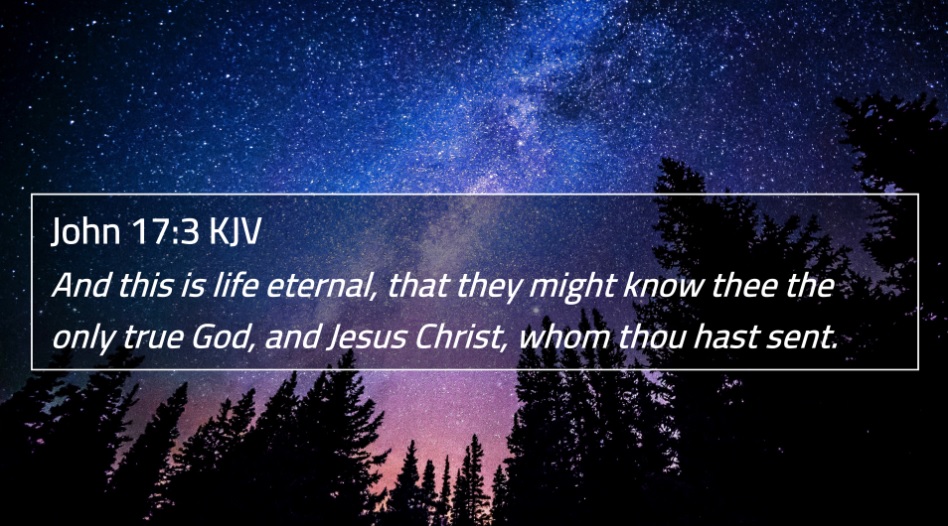“Go therefore and make disciples of all the nations…teaching them to observe all that I commanded you; and lo, I am with you always, even to the end of the age” (Matthew 28:19-20, NASB).
——————–
Contents:
1) Seeking God (Tim Jennings)
2) “Hellenist” Christians? (Wayne Goff)
3) Developing as a Christian (video sermon, Tom Edwards)
4) News & Notes
——————–

-1-
Seeking God
Tim Jennings
Knowing God is the essential pursuit of life. Now is time for the Lord to take his rightful place in our affections and be the object of our investigations. Now is time for God’s people to be captivated by the Lord’s infinite character and glorious works. “I want to know Him,” needs to be the ambition which makes all other pursuits insignificant (Phil. 3:8-10).
It may seem strange to suggest that Christians need to consider Christ. Yet, religion has always been a respectable place to ignore God. We are constantly tempted to enthrone our own feelings and pursue our own pleasures. We end up with Christless churches filled to the brim with disciples of religious celebrities.
Is that off the mark? Just look what happens when a little “crisis” arises. We splinter in a hundred directions! Why? Because we are more acquainted with our rights than God’s ways. A pursuit of the knowledge of God vaccinates us against the sickness of self-worship which lies under a thin veneer of religious justification.
I wonder, could our faith survive the transition the early church made from popularity to persecution (Acts 2-8)? Do we have the courage to share the gospel and start a church in a new city (Acts 8:4; 11:19-26)? Do we have the love to yield our rights to live in fellowship with others (1 Cor. 8:1-13)? Do we have the humility to serve someone vastly different from ourselves (Acts 6:1-7)? Or do we simply find a place we feel comfortable?
The solution to this Christless Christianity is to know the Lord. This is much more than knowing doctrines, traditions, and institutions. It is to launch into the inexhaustible journey to discover the nature of God.
This is possible because God made himself known to us. He placed his signature on Creation. He recorded his deeds and values in the Scripture. Ultimately, he modeled his ways in Jesus, “the exact imprint of his nature” (Heb. 1:3). God wants us to know Him! So, he says, “Be still, and know that I am God” (Psalm 46:10).
To do this requires a reorientation of our reading of Scripture. The primary purpose of revelation is not human happiness or church policy, it is to know God (Ex. 20:1; John 1:18; 5:39; et al.)! His glory engulfs each story. His power is to be praised. His character is to be embraced.
This focus spills over into our hymns, prayers and preaching where we speak more of God than self! We do this until we recognize God is on his throne and we are on our knees. Only then will we be rightly directed by what he says and reflect who he is.
Jesus prayed, “this is eternal life, that they know you the only true God, and Jesus Christ whom you have sent” (John 17:3). Human movements often devolve from noble ideals into an arrogant struggle between personalities. The history of religion is no different. But rescue comes when we turn our eyes upward with a singular passion to know the Lord. This is the time to know Him!
Extra Bit:
At the base of Mount Sinai Israel thought they knew God. To them, God looked like a golden calf who was worshipped with bodily comfort, pleasure, and riches (Exodus 32). By the end of the day 3,000 died because their knowledge of God was corrupted. We laugh at their foolishness and sneer at their rebellion, but do we also mix our knowledge of God with tradition and cultural expectations?
Israel made their “god” out of gold and fashioned him with the glory of their talent and worshipped him with the pleasures of their flesh.
But Moses took a different approach. He asked the Lord, “Please show me your glory” (Exodus 33:18). What Moses wanted more than personal charisma and admiration from his peers was to know God. He was richly rewarded.
5 The Lord descended in the cloud and stood with him there, and proclaimed the name of the Lord. 6 The Lord passed before him and proclaimed, “The Lord, the Lord, a God merciful and gracious, slow to anger, and abounding in steadfast love and faithfulness, 7 keeping steadfast love for thousands, forgiving iniquity and transgression and sin, but who will by no means clear the guilty, visiting the iniquity of the fathers on the children and the children’s children, to the third and the fourth generation (Exodus 34:5-7).
Moses saw something more glorious than gold. He came to know God! The result: “Moses quickly bowed his head toward the earth and worshiped” (Exodus 34:8). Israel worshiped the god of their own making and “rose up to play” (Exodus 32:6). Moses learned about the God of glory, and he “bowed down to worship.” The knowledge of God was so enlivening he continued to serve the stubborn people of God with a face that shined like the God he came to know.
— Via Focus Online, December 14, 2020
——————–

-2-
“Hellenist” Christians?
Wayne Goff
“Now in those days, when the number of the disciples was multiplying, there arose a complaint against the Hebrews by the Hellenists, because their widows were neglected in the daily distribution” (Acts 6:1).
The church at Jerusalem was comprised of “Hebrew” Christians and “Hellenist” Christians. Both were Jewish people, but there was a difference between the two. For whatever reason, the widows of the Hellenists were being ignored in the first church at Jerusalem, and that caused a conflict which was biblically resolved.
“Hellenist” Jews were those who were caught up in the cultural revolution of Alexander the Great and his Greek Empire when Greeks dominated the world. This Greek (Hellenist) influence continued through his Generals after his death, and even when Rome became the world power they continued the process of Hellenization.
So Hellenist Jews were those who began to speak the Greek language over the Hebrew language and worshiped God and read the Law of Moses in Greek. The Greek translation of the Old Testament, called “the Septuagint,” was made in Alexandria, Egypt around 250 B.C., so that shows you how wide-spread and lengthy this cultural transition was to the world at that time.
The “Hebrew” was the one who continued to speak the Hebrew language, worshiped God in the Hebrew tongue, and considered himself more loyal to God and the Law than the “Hellenists.” Paul references this in Philippians 3:5 when he lists his own Jewish “RESUME” — “… a Hebrew of the Hebrews; concerning the law, a Pharisee.” Again you see this in 2 Corinthians 11:22 — “Are they Hebrews? So am I. Are they Israelites? So am I. Are they the seed of Abraham? So am I.” So you can see how this could cause problems in the Jerusalem church when Hebrew Christians and Hellenist Christians are joined together. But even a “Hebrew” like Paul could learn and speak the Greek language so long as he worshiped in Hebrew. Read also Acts 21:40—22:1-2 where Paul speaks to an angry mob in the Hebrew tongue.
The real problem existed when Jews began to imitate not only the manners and customs of the Greeks, but then began to worship the gods of the Greeks! That was taboo to both Jews and Christians in the first century, but it is typical of those who are more influenced by “society” than by “God and religion.”
— Via Roanridge Reader, Volume 37, Issue 21, Page 4, May 22, 2022
——————–
Psalm 138:6-8
“For though the LORD is high, he regards the lowly, but the haughty he knows from afar. Though I walk in the midst of trouble, you preserve my life; you stretch out your hand against the wrath of my enemies, and your right hand delivers me. The LORD will fulfill his purpose for me; your steadfast love, O LORD, endures forever. Do not forsake the work of your hands.”
— NASB
——————–
Developing as a Christian
Tom Edwards
For the video sermon with the above title, just click on the following link:
https://thomastedwards.com/wordpress/Developing_as_a_Christian.mp4
——————–
-3-
News & Notes
Folks to remember in prayer, due to their health:
Rex Hadley, June Peters, Lois Fletcher, Alex Cornelius, Rick Cuthbertson, A.J. & Pat Joyner, Danielle Bartlett, Donald Sears, Ronnie Davis, Jim Lively, Kayla Williams, Doyle Rittenhouse, Tammy Griffey, Deborah Medlock, Vivian Foster, and Kim Rowell.
——————–
The Steps That Lead to Eternal Salvation
1) Hear the gospel — for that is how faith comes (Rom. 10:17; John 20:30-31).
2) Believe in the deity of Jesus Christ, the Son of God (John 8:24; John 3:18).
3) Repent of sins. For every accountable person has sinned (Romans 3:23; Romans 3:10), which causes one to be spiritually dead (Ephesians 2:1) and separated from God (Isaiah 59:1-2; Romans 6:23). Therefore, repentance of sin is necessary (Luke 13:5; Acts 17:30). For whether the sin seems great or small, there will still be the same penalty for either (Matt. 12:36-37; 2 Cor. 5:10) — and even for a lie (Rev. 21:8).
4) Confess faith in Christ (Rom. 10:9-10; Acts 8:36-38).
5) Be baptized in water for the remission of sins (Mark 16:16; Acts 2:38; 22:16; 1 Pet. 3:21). This is the final step that puts one into Christ (Gal. 3:26-27). For from that baptism, one is then raised as a new creature (2 Cor. 5:17), having all sins forgiven and beginning a new life as a Christian (Rom. 6:3-4). For the one being baptized does so “through faith in the working of God” (Col. 2:12). In other words, believing that God will keep His word and forgive after one submits to these necessary steps. And now as a Christian, we then need to…
6) Continue in the faith by living for the Lord; for, if not, salvation can be lost (Matt. 24:13; Heb. 10:36-39; Rev. 2:10; 2 Pet. 2:20-22).
——————–
Tebeau Street
CHURCH OF CHRIST
1402 Tebeau Street, Waycross, GA 31501
Sunday: 9 a.m. Bible Classes and 10 a.m. Worship Service. We also have a Song Service at 5 p.m. for every first Sunday of the month.
Wednesday: 7 p.m. for Bible Classes
evangelist/editor: Tom Edwards (912) 281-9917
Tom@ThomasTEdwards.com
https://thomastedwards.com/go/all.htm (This is a link to the older version of the Gospel Observer website, but with bulletins going back to March 4, 1990.)